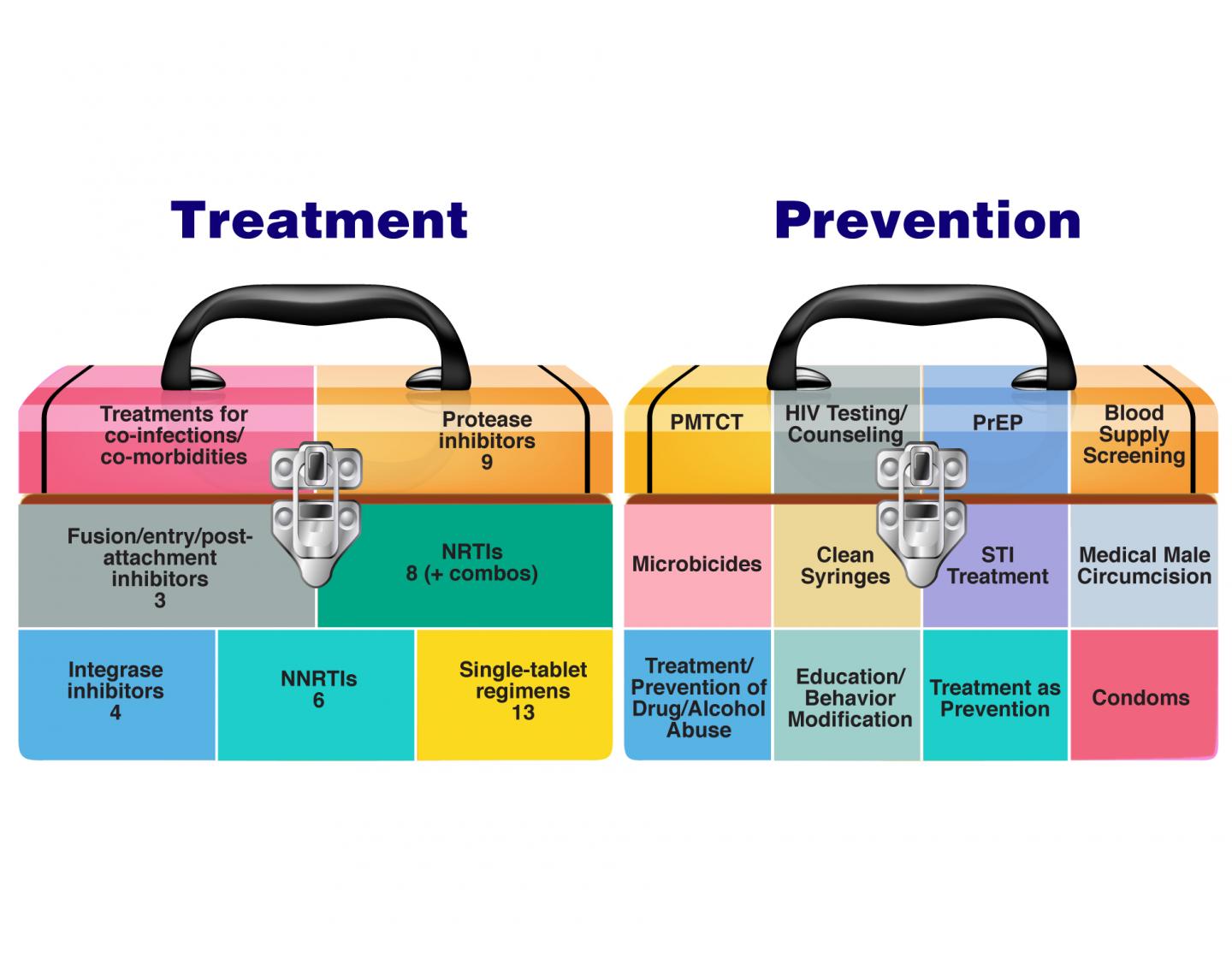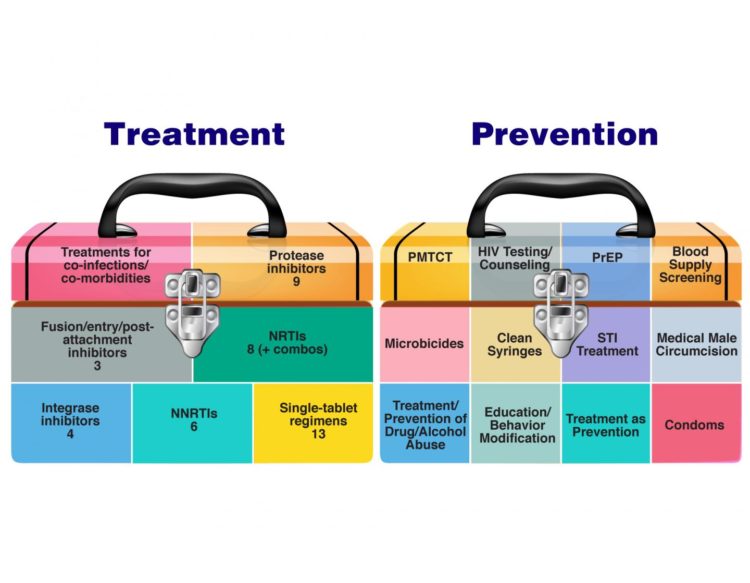Commentary emphasizes need to optimally implement current tools and develop new interventions

Credit: NIAID
WHAT:
Optimal implementation of existing HIV prevention and treatment tools and continued development of new interventions are essential to ending the HIV pandemic, National Institutes of Health experts write in a commentary Clinical Infectious Diseases.
Today, many highly effective HIV treatment and prevention interventions are available. Antiretroviral therapy (ART) not only improves the health and prolongs the lives of people with HIV but also plays an important role in HIV prevention. People living with HIV whose virus is durably suppressed to undetectable levels by ART cannot sexually transmit HIV to others, a concept known as Undetectable=Untransmittable, or U=U. Antiretroviral drugs taken by people without HIV as pre-exposure prophylaxis (PrEP) are highly effective at preventing acquisition of HIV.
Theoretically, the widespread provision of ART and PrEP could end the HIV pandemic. However, a gap exists between theory and reality, write Anthony S. Fauci, M.D., director of NIH’s National Institute of Allergy and Infectious Diseases (NIAID), and colleagues. Implementation gaps exist at all stages of the HIV care continuum. Progress in cities like San Francisco, which has dramatically reduced new HIV cases by deploying ART, PrEP and other tools, suggests that these gaps can be overcome. Such examples offer lessons for optimizing implementation strategies.
Even with the availability of simplified HIV drug regimens, medication adherence remains a challenge for many. Thus, there is a need to develop new treatment and prevention strategies and products that can be efficiently taken up by people from diverse communities. Potentially, these new tools will have improved efficacy and broader uptake due to better acceptability and usability.
Researchers are pursuing multiple approaches to achieve durable control of HIV without daily ART, including pursuing a cure that would eradicate HIV from the body or keep it at very low levels, and developing long-acting ART and broadly neutralizing antibodies (bNAbs) that could be dosed once every few months or less often. Approaches to optimizing HIV prevention include long-acting injectables and implants, bNAbs, multi-purpose tools for HIV prevention and contraception, and other innovative strategies. Scientists also are working toward development of a safe and effective preventive HIV vaccine. Currently, three large HIV vaccine efficacy clinical trials are under way globally.
###
ARTICLE:
RW Eisinger, GK Folkers, and AS Fauci. Ending the HIV pandemic: optimizing the prevention and treatment toolkits. Clinical Infectious Diseases DOI: 10.1093/cid/ciz998 (2019).
WHO:
NIAID Director Anthony S. Fauci, M.D., is available for comment.
CONTACT:
To schedule interviews, please contact Hillary Hoffman, (301) 402-1663, [email protected].
NIAID conducts and supports research–at NIH, throughout the United States, and worldwide–to study the causes of infectious and immune-mediated diseases, and to develop better means of preventing, diagnosing and treating these illnesses. News releases, fact sheets and other NIAID-related materials are available on the NIAID website.
About the National Institutes of Health (NIH): NIH, the nation’s medical research agency, includes 27 Institutes and Centers and is a component of the U.S. Department of Health and Human Services. NIH is the primary federal agency conducting and supporting basic, clinical, and translational medical research, and is investigating the causes, treatments, and cures for both common and rare diseases. For more information about NIH and its programs, visit http://www.
Media Contact
Hillary Hoffman
[email protected]
301-402-1663
Related Journal Article
http://dx.





